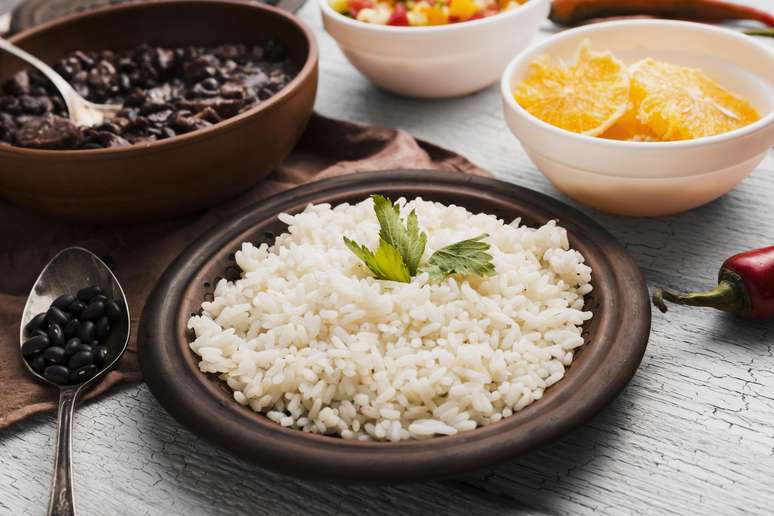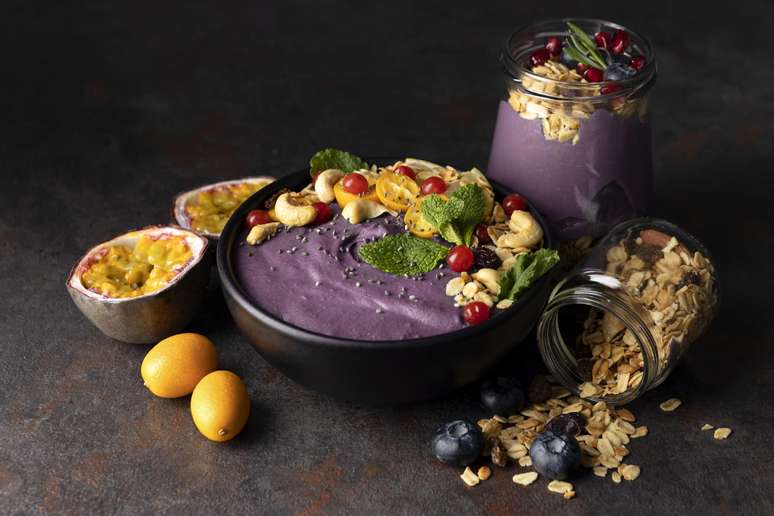Know the advantages of this versatile vegetables that earns space in healthy food
The chard, coming from Asia Minor and the Mediterranean, belongs to the Quenopodiacea family, the same as the beetroot and the real spinach. Very present in eastern cuisine, it is also consumed in countries of the Atlantic coast and Europe due to its versatility and soft flavor, which allows the preparation of soups, salads and even gratin.
However, it is not just your taste that attracts attention. The variety of types of vegetables such as green, white, rainbow, yellow, among others, also contributes to its importance in food, combining colors, plots and nutritional benefits in an ingredient.
Subsequently, take a look at 5 reasons to include the chard on the diet and the suggestions for safe conservation!
1. Strengthen the immune system
Acelga is a vegetable rich in vitamin C, an essential nutrient to strengthen the immune system and maintain the integrity of the blood vessels. According to Brazilian Food Composition Table (TBCA), the University of San Paolo (USP) and the Food Research Center (Forc), 100 g of Acelga provides about 22.6 mg of vitamin C.
Added to Vitamins A. And K, in addition to calcium and iron, makes the vegetation an ally in the fight against anemia, since vitamin C improves iron absorption and contributes to the production of white blood cells, important in the defense of the body.
2. Improve the vision
According to the Ministry of Health (SM), consuming foods rich in vitamins A, C and E, in addition to zinc, magnesium and copper, is a great way to preserve eye health, since these nutrients act as antioxidants that fight free radicals, mainly responsible for the aging of the eyes.
The chard, regardless of the variety, contains these essential compounds, although some versions have higher concentrations of antioxidants than others. Therefore, it can be a great ally in the prevention of eye diseases such as macular degeneration and cataracts.
3. Increases resistance to bones increases
Calcium, vitamin K and Acelga magnesium are fundamental for the formation and maintenance of the bone structure. While calcium contributes directly to bone density, magnesium helps in their absorption and fixation body. Vitamin K, in turn, participates in the regulation of proteins involved in bone mineralization, reducing the risk of fractures and osteoporosis.
This is mainly important because, according to the Ministry of Health, it is estimated that 50% of women and 20% of men aged or more than 50 will suffer from an osteoporotic fracture throughout their lives.

4. It contributes to the control of blood pressure
The chard contains potassium – 239 mg per 100 g, according to the Brazilian table of the food composition (TBCA). According to the World Health Organization (WHO) and the Ministry of Health (SM), the correct intake of this nutrient is related to the reduction of blood pressure and the least risk of cardiovascular problems, in particular in the populations with a high sodium consumption. This is because potassium helps the electrolytic balance of the body, promotes the expansion of the blood vessels and stimulates the elimination of excess sodium by the kidneys – mechanisms that contribute to maintaining pressure within healthy levels.
5. It can help in the protection of the liver
The study “Effects of the chard.Published in the academic magazine Bioscience, biotechnology and biochemistryassessed the effects of the beer stack on the liver of diabetic rats for 28 days, through the administration of gavage (directly in the stomach). The researchers observed that the diabetic rats that did not receive the extract had liver damage, while these same damages were significantly reduced – or even absent – in animals treated with cornerstones.
In addition, researchers identified a decrease in glucose levels and liver damage markers, as well as an increase in glutathione levels – antioxidant substance present in the blood and liver – and the recovery of body weight. On the basis of these results, they concluded that “the extract of this plant has a protective effect on the liver on diabetes mellitus”.
Despite the positive results of the study, it is important to highlight that the analysis was performed in the rats. Therefore, human studies are needed to confirm these effects and determine their safety and clinical efficacy.
How to keep the chard safely
According to the data of the Brazilian agricultural research company (Embrapa), Acelga, as well as other vegetables, has a high perishable and can ruin quickly. Therefore, the Ideal it is to put it in the refrigerator For a period from 5 to 10 days, depending on the care adopted. According to the agency, the leaves should be kept without washing, but if cleaning is required before storage, it is recommended to wash them in running water, drain and keep in a plastic bag or a container with a lid.
Another alternative to keep the chard longer is freezing, which should be made after quick cooking in boiling water for about 2 minutes. These measures help to preserve vegetables of vegetables and prevent proliferation of microorganisms, guaranteeing safe and prolonged consumption.
Source: Terra
Ben Stock is a lifestyle journalist and author at Gossipify. He writes about topics such as health, wellness, travel, food and home decor. He provides practical advice and inspiration to improve well-being, keeps readers up to date with latest lifestyle news and trends, known for his engaging writing style, in-depth analysis and unique perspectives.








